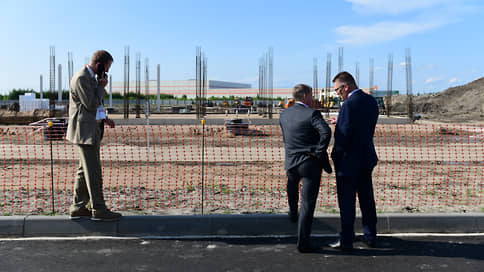The Ministry of Construction intends to tighten its approach to regulating services in the field of construction control
[ad_1]

The Ministry of Construction has prepared a draft amendment to the Town Planning Code, which prohibits companies that carry out construction control of a facility under construction from transferring their responsibilities under the contract to other persons. Also, due to complaints about the quality of services of commercial organizations, the Ministry of Construction plans to enshrine in the code the powers of the authorities of the constituent entities of the Russian Federation to make decisions on conducting construction control only by regional government agencies or their institutions. Experts believe that the amendments will strengthen the role of the state in this area, but are unlikely to solve the problems existing in it.
The Ministry of Construction proposes to tighten the approach to construction control – as follows from the draft amendments to the Urban Planning Code (GrK) prepared by the department, it is planned to prohibit the organizations implementing it from transferring their rights and obligations under the contract to other persons. Let us explain that we are talking about conducting a mandatory assessment of the compliance of construction work with technical regulations that affect safety, as well as assessing design documentation. Such control is carried out by the developer or customer with the involvement of specialized organizations under a contract.
The Ministry of Construction explains the need for the ban by the fact that the co-contractor, having, as a rule, low qualifications, does not bear direct responsibility to the customer, which “leads to a decrease in his interest in the quality of the work performed.” At the same time, the department adds, the absence of a ban on such subcontracting now leads to the fact that “all measures to enhance the quality of construction control, qualification requirements and expert competencies completely lose any practical meaning in the presence of the possibility of uncontrolled conclusion of subcontracts.”
At the same time, it is planned to supplement the GK with provisions on the powers of top officials of the constituent entities of the Russian Federation to make decisions on the conduct of construction control by regional authorities or their subordinate institutions in relation to facilities with the participation of the regional budget – by analogy with the powers of the government. Now, due to the lack of such a norm, construction control at regional facilities is carried out by commercial companies on the basis of state contracts. This does not suit the Ministry of Construction – the department notes that “commercial construction control is rapidly degrading, and the corruption factor is decisive in bidding and determining the supplier.” So, purchases often involve legal entities affiliated with the customer, who are not interested in obtaining legitimate profits – this, according to the Ministry of Construction, leads to such companies dumping, cutting off competitors at the auction, as well as to “subsequent blackmail of the customer by such persons.”
Ilya Ponomarev, an expert at the Public Council under the Ministry of Construction, notes that the structure of budget calculations involves control over each element of the construction estimate in terms of its volume and cost. However, the proposed approach, the expert believes, is debatable – according to him, “the contract system in construction should be formed not on the basis of step-by-step detailed control, but on the principles of control of competencies and responsibility for the result.” Oleg Rubtsov, director of the Institute for Construction and Housing and Public Utilities GASIS HSE, notes that the initiative is aimed at strengthening the role of state control in construction at the expense of budgetary funds. “In fact, a moratorium is being imposed on the implementation of construction control functions by small and medium-sized businesses in the public sector – even on subcontracting from state structures endowed with these powers,” he says. On the one hand, Mr. Rubtsov believes, this reduces competition in this segment, and on the other hand, it increases the transparency of control and helps to solve the problem of the often low quality of construction control carried out by private organizations.
According to Mikhail Fedorov, resident of the TsSR expert club, founder of the Quality Solutions.rf project, the changes may complicate the work of contractors. They are unlikely to solve the problem of controller independence, lack of competencies and poor quality; rather, they will increase the burden on government agencies, which have “exactly the same problems.” According to Oleg Korchagin, Associate Professor of the Department of Legal Support of the Civil Service of the Institute of Civil Engineering, RANEPA, first of all, it is worth considering the possibility of additional regulation of commercial construction control – “the approach at the regional level should be differentiated depending on the cost of the work carried out and other circumstances.”
[ad_2]
Source link






